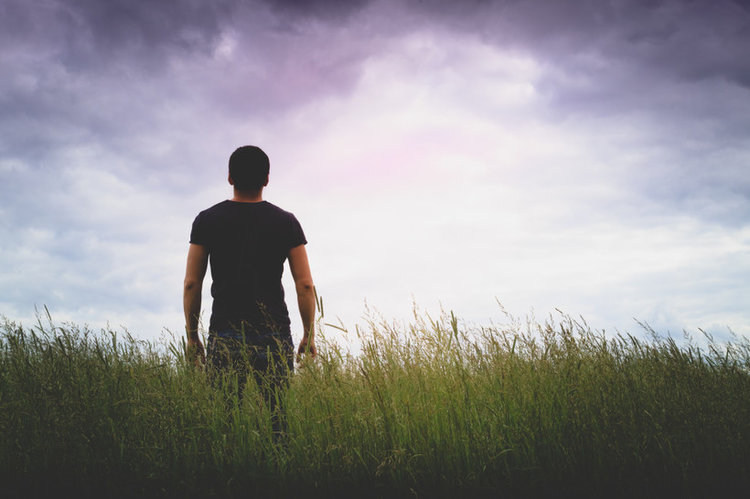It’s beginning to look a lot like Christmas.
For some of us a time of joy. For the rest of us four days (tops) of bearable family time until we regress into that delightful fifteen-year-old we once were.
But for many, it's also a time of intense loneliness. One made worse by the festive cheers from the next-door neighbors, the soppy department store ads, and the carefully curated Instagram posts from estranged friends.
There’s a cynicism about loneliness. You see yourself and you feel completely disconnected. Yet, you forget there are millions of people in this very moment feeling exactly like you.
Togetherness in feeling alone. That's loneliness sticking both its grubby fingers up at you.
Not to be confused with solitude, loneliness is based on perception. In my practice as an online life coach, I speak with clients who might be surrounded by people, friends even, and still feel lonely. It’s perfectly normal and happens quite frequently, but once you’ve settled on that perception, reaching out to others becomes harder. Especially given the changes in our brain chemistry which can increase social anxiety and make you more socially awkward.
Loneliness is also a ruthless killer. Statistics show that living life in loneliness increases your odds of dying an early death by 40 percent.
But what does science say about social isolation? Is there a purpose to it?
What happens to the brain of a person who’s lonely that makes it just so much more difficult to reach out?
How do you start lifting yourself out of it, especially when you don't have many people around?
Answers below, along with a very special Christmas gift at the bottom of this email.
The science behind loneliness
Social isolation has in the past often been characterized as a non-chronic disease associated with shyness, depression, being a loner, or simply lacking social skills.
But according to neuroscience, the pain and aversion towards loneliness and of feeling isolated from those around you, while extremely unpleasant, are vital for survival. Neuroscience professor Dr. John Ciacoppo found it's part of biological early warning machinery to alert you to threats and damage to your social body, which you also need to survive and prosper.
But our brains can be unreliable allies. The same neurological processes that are at work when we feel lonely, also severely impact our social skills, hence why you might feel cynical and disinclined to reach out to others.
The epidemic of gay loneliness
From depression and suicide to drug use and other risky behaviors, Michael Hobbs makes an excellent argument about the blight of loneliness on the lives of many gay men, blaming it on ‘minority stress’ among other things.
In his response, Ben Miller throws some serious shade on Hobb’s arguments in an equally compelling way. I’m staying comfortably on the fence because essays are well worth a read.
How do you lift yourself out of social isolation?
Yep, the million-dollar question that can literally save your life.
If you want to get past those feelings of loneliness, here are a couple of steps YOU need to take.
1) Acknowledge that you’re feeling lonely. Admit it, own it, don’t deny it.
2) Understand what loneliness does to your brain, to your body, and to your behavior. Your brain is highly likely to be in self-preservation mode. It’ll tell you to lash out at others and be cynical about their intentions.
Recognize that you’re not the best judge of character right now and cut the people around you some slack.
3) Respond by developing a relationship with individuals you feel could trust. This really isn’t about quantity. It’s about quality. There are people out there who really care about you if you gave them a chance to.
Find even just one individual who you can confide in and who can confide in you. Develop and nurture that relationship, be patient, and by all means reciprocate.
4) Start developing your interests. See if you can connect with something that’s bigger than you. I’m not even necessarily talking about joining a Meetup group, although that’s an option too.
I’m talking about developing a wider sense of purpose. Maybe one that you'll find in spirituality, or perhaps through volunteering with a local charity.
These four steps are a slow and messy process. But remember you're hardwired to be a social creature and continued isolation will be a far messier option in the long run.
Unless YOU take the first step, your situation is unlikely to change.
Here are some further useful tips to address and prevent social isolation.
And finally...
You're an amazing and supremely loveable human being. My hope is that the next twelve months prove me and you right about that.
If you’d like a confidential chat to talk about how you’re feeling about your relationship with others, do get in touch.

